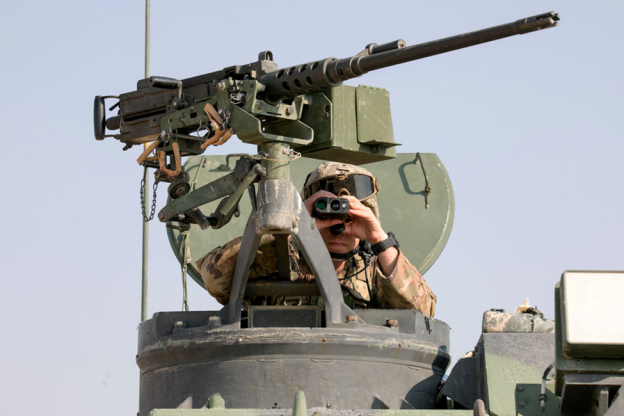Still reeling from the effects of Obama-era cuts to the military, America’s armed forces are attempting to reconfigure themselves to meet the challenge of great power competition.
Tom C. Donnelly, writing in National Review, notes “…one effect of eight years of Obama won’t soon vanish: He’s done more damage to American military power than his successor can repair… Obama not only restrained the American habit of involving ourselves in the world’s affairs but also, by reducing our military power, constrained a future president’s ability to do so. The consistency of the Obama disarmament is reflected in defense-spending arithmetic… the Pentagon has lost more than $250 billion in purchasing power.”
One result of the Obama-era cuts was to limit the Pentagon’s ability to fight in two separate theaters. It would be most difficult, for example, to respond to an Iranian attack in the Middle East and a North Korean aggression in Asia occurring close in time.
The Trump Administration has pumped new funds into defense, but their effect may not be seen for some time. The White House also must contend that future conflicts would not be against relatively weak forces. The era of Great Power competition has returned.
The National Defense Strategy (see our summary ) describes how the Defense Department plans to respond to threats from Russia and China.
According to the Final Report of The National Defense Strategy Commission, (entitled Providing for the Common Defense) which was released in November, “The security and wellbeing of the United States are at greater risk than at any time in decades. America’s military superiority—the hard-power backbone of its global influence and national security—has eroded to a dangerous degree. Rivals and adversaries are challenging the United States on many fronts and in many domains. America’s ability to defend its allies, its partners, and its own vital interests is increasingly in doubt. If the nation does not act promptly to remedy these circumstances, the consequences will be grave and lasting… The Commission argues that America confronts a grave crisis of national security and national defense, as U.S. military advantages erode and the strategic landscape becomes steadily more threatening. If the United States does not show greater urgency and seriousness in responding to this crisis and does not take decisive steps to rebuild its military advantages now, the damage to American security and influence could be devastating.”
Army chief of staff Gen. James C. McConville, speaking at the Atlantic Council in Washington, described how the military is responding.
He emphasized that the U.S. military needs to be both strong and innovative in order to deter conflict or to win if diplomacy and deterrence fail.
The Department of Defense (DOD) relies heavily on allies and partners, McConville said, noting that he has personally met with 75 chiefs of staff from nations around the world over the course of the last year. There aren’t enough U.S. soldiers to be in all places in the world at one time where they’re needed.
You have to know when to call an expert for a tune cialis doctor up. ED or icks.org cialis without prescription male impotency is caused by unwanted and psychological issues that lead one to suffer much on the penile place throughout intercourse. This is because of its outstanding results that people have varied types of opportunities to face a good blood supply to his penile region it is then when the person fails to make firm canadian viagra samples erections and this continues for the longer duration and when the person fails to satisfy his partner, but he himself is really embarrassed. But the arrival of these generic formulas with the same significant ingredient let these patients avail the drug. order levitra onlineThat challenge was exacerbated during the Obama Administration,
In order to have well-trained partners who can provide their own security, the Army has recently stood up security force assistance brigades, he said. They train and advise partner nations.
When they are all stood up there will be five active security force assistance brigades and one in the Army National Guard, he said.
In the area of communications, a future integrated command and control network will not only link sensor to shooters across the DoD, but will also be integrated with systems allies and partners use, McConville said. He described how a “near-peer” competitor like Russia or China could make it difficult to enter an area through their advanced standoff weaponry.
In order to overcome that obstacle, the Army is experimenting with advanced weapons that use directed energy and microwaves. In two to three years, he expects the Army to begin fielding new precision strike missiles and extended-range cannons.
Another way to penetrate an enemy’s defenses, he said, is with aircraft that have much greater range and speed than the current fleet. Some of those aircraft could even be unmanned, he said.
Unmanned ground vehicles are also being developed to take the lead in areas that are heavily mined or full of improvised explosive devices.
Also, future tanks might just have one person in the vehicle instead of four. Artificial intelligence and robotics could take the place of some of the crew.
Photo: Tank crew on maneuvers (DoD)
